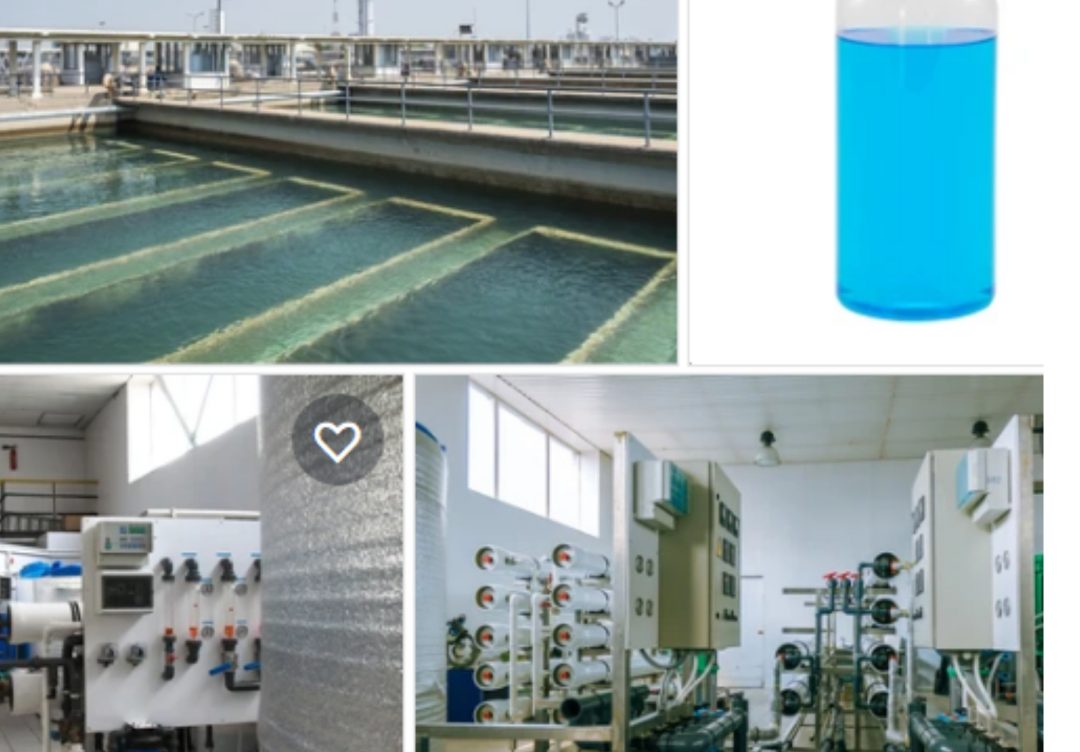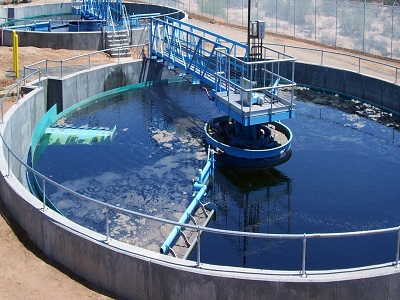When Picking Water Treatment Chemicals for Optimum Performance, what to Look for.
When selecting water treatment chemicals, it's necessary to understand your details demands and the impurities existing in your water supply. You'll want to assess the efficiency of potential chemicals, ensuring they work well with your existing systems.
Comprehending Your Water Treatment Demands
When you're evaluating your water treatment needs, it's vital to determine the particular concerns impacting your water supply. Start by testing your water for impurities like germs, hefty steels, and chemicals.
Following, think of the resource of your water-- whether it's from a well, a local supply, or a various resource. Each has distinctive obstacles that call for tailored options. Likewise, consider your family's water use and any particular health worries your household might have. By comprehending these aspects, you can ensure that you select the appropriate chemicals and therapy approaches to successfully resolve your unique requirements, causing tidy and risk-free water for your home.

Examining Chemical Efficacy
To guarantee the chemicals you choose are reliable, you require to examine their efficiency against your specific water therapy goals. Look for independent examination results or accreditations that demonstrate the chemical's effectiveness in real-world applications.
Next, think about the chemical's rate of action and the moment it takes to achieve desired outcomes. water treatment chemicals kingwood texas. Evaluating the chemical in a controlled setting, if feasible, can likewise help you determine its efficiency
Don't neglect to examine any possible side impacts or environmental influences that might arise from making use of the chemicals. By completely evaluating these variables, you can make educated selections that line up with your water therapy goals, guaranteeing ideal efficiency and safety for your system.
Making Sure Compatibility With Existing Systems
When choosing water therapy chemicals, you need to examine exactly how well they'll deal with your existing systems. It's important to evaluate possible chemical interactions to prevent any kind of unfavorable results. By ensuring compatibility, you can improve system efficiency and maintain water high quality properly.
System Compatibility Assessment
Protecting compatibility with existing systems is important for efficient water therapy, as incorrectly chosen chemicals can lead to tools damages and reduced performance. In addition, examine the pH levels and temperature limits of your system, as these elements can impact chemical performance. By taking these actions, you'll assist guarantee that the chemicals you choose will certainly work harmoniously with your current configuration, enhancing efficiency and protecting your financial investment.
Chemical Communication Evaluation
Since comprehending chemical communications is important for keeping system honesty, it's crucial to analyze just how the chemicals you prepare to make use of will interact with those already existing in your water treatment system. Beginning by evaluating the chemical make-up of your existing therapies. Look for potential responses that can result in undesirable results or reduce efficiency. Conduct compatibility examinations to determine how new chemicals will behave in conjunction with the present ones. Pay focus to variables like pH levels, temperature level, and concentration, as these can considerably impact interactions. Constantly speak with safety data sheets and engage with chemical providers for understandings on compatibility. By taking these actions, you'll assure peak performance and prolong the life-span of your water therapy system.

Assessing Security and Handling Needs
When choosing water therapy chemicals, you require to prioritize safety and security and handling needs. Make certain you comprehend the governing conformity requirements, use the appropriate individual protective devices, and follow proper storage and disposal standards. This ensures not just your safety but additionally the atmosphere's well-being.
Regulatory Compliance Criteria
Comprehending regulative compliance standards is important for anyone included in water therapy, as these standards dictate the safety and handling demands for chemicals utilized in the process. You'll need to familiarize on your own with regional, state, and federal guidelines, which can differ greatly. Compliance guarantees that the chemicals you select not only satisfy safety requirements however likewise minimize environmental effect. It's crucial to analyze Product Safety Data Sheets (MSDS) for essential details on storage space, handling, and possible risks. In addition, maintain up with updates in guidelines to prevent pricey charges or security violations. By prioritizing conformity, you protect on your own, your group, and the atmosphere while keeping the efficiency of your water treatment operations.
Individual Protective Tools
You require to evaluate the particular chemicals you'll be handling and choose PPE that safeguards versus their risks. Constantly examine the Material Safety and security Data Sheets (MSDS) for each chemical to recognize the necessary PPE demands. When functioning with harsh or toxic chemicals, do not take faster ways-- spend in high-grade tools that fits well and is comfy to wear.

Storage and Disposal Standards
Correct storage and disposal of water treatment chemicals is important for keeping security and compliance. Constantly shop chemicals in their original containers, snugly secured, and in a great, completely dry location far from straight sunlight. Validate that you label all containers plainly to prevent confusion.
When taking care of chemicals, use proper personal safety equipment, like handwear covers and safety glasses. Recognize any kind of specific storage directions or temperature needs.
For disposal, follow neighborhood policies and guidelines. Never ever pour chemicals away or blend different materials, as this can produce harmful responses. Rather, utilize designated disposal facilities or waste collection solutions. By adhering to these standards, you'll help validate a secure working setting and reduce environmental impact.
Assessing Regulatory Compliance Requirements
While assessing water treatment chemicals, you need to be knowledgeable about the regulatory conformity standards that control their use. These requirements guarantee that the chemicals you choose fulfill security, wellness, and environmental needs. Familiarize yourself with regional, state, and federal regulations, such as the check this site out Environmental Security Agency (EPA) guidelines in the USA.
You ought to likewise look for any industry-specific standards that may use to your operations, like those from the American Water Works Association (AWWA) or the National Sanitation Foundation (NSF)
It's vital to validate that the chemicals you select are approved for the desired application, specifically if they'll impact alcohol consumption water top quality. Non-compliance can result in her comment is here significant lawful repercussions and negatively influence public wellness.
Thinking About Cost-effectiveness and Budget Plan Restrictions
When you're selecting water treatment chemicals, it's essential to weigh cost-effectiveness along with your spending plan constraints. Beginning by assessing the general expenses, including not just the acquisition price however additionally delivery, handling, and disposal fees. Analyze how these chemicals will impact your functional expenses gradually.
Think about the performance of each chemical; some may have a higher upfront cost yet provide much better efficiency and reduced lasting expenditures. Seek products that need lower dosages or less regular application, as these can save you money in the future.

Don't fail to remember to aspect in prospective financial savings from improved water top quality and compliance with regulations, which can avoid expensive penalties. Involve with your group to determine which choices align with your economic objectives while still satisfying your treatment needs. Striking the best equilibrium can lead to reliable remedies without breaking the financial institution.
Analyzing Supplier Online Reputation and Assistance Solutions
Choosing the best vendor for your water therapy chemicals is necessary, as their track record and support solutions can considerably impact your procedures. Beginning by looking into possible providers-- try to find evaluations and testimonials that highlight their dependability and top quality. A solid online reputation commonly suggests a dedication to client fulfillment and item performance.
Following, examine the assistance services they supply. Do they offer technical aid, training, and prompt actions to queries? A provider that stands by their items and wants to help you repair issues can save you money and time in the future.
Lastly, consider their experience in the industry. A recognized vendor with a proven track record is most likely to understand your details demands and supply tailored visit this page solutions. By very carefully evaluating these aspects, you'll locate a companion that not just meets your chemical requires but also sustains your general functional goals.
Frequently Asked Concerns
How Do I Determine the Right Dose for Chemicals?
To establish the right dosage for chemicals, you ought to assess water high quality, comply with producer guidelines, and carry out normal testing. Adjust your dose based on results, guaranteeing you keep optimal therapy performance and water security.
Can Water Therapy Chemicals Affect My Water Preference or Odor?
Yes, water therapy chemicals can impact your water's taste and odor. If you see any type of adjustments, it is critical to review the chemicals used and adjust dosages or button to alternatives for far better outcomes.
What Are the Common Indicators of Chemical Incompatibility?
You'll discover indications of chemical conflict via unanticipated color modifications, debris development, or uncommon smells. If you see these problems, it's crucial to reassess your chemical choices to assure efficient and secure water treatment.
Just how Commonly Should I Examine Water After Chemical Therapy?
You ought to evaluate your water routinely after chemical therapy, preferably within 1 day, then weekly for the very first month. After that, regular monthly screening assists guarantee continuous safety and effectiveness of your water treatment system.
What Environmental Effects Should I Take Into Consideration With Chemical Usage?
When utilizing chemicals, consider their impacts on neighborhood environments, water high quality, and air contamination. water treatment chemicals kingwood texas. You must additionally assess possible overflow and the long-lasting sustainability of your water treatment techniques to minimize ecological harm
Conclusion
In summary, picking the ideal water therapy chemicals is vital for peak efficiency. By comprehending your specific needs and assessing aspects like efficacy, compatibility, safety, and costs, you can make informed decisions. Don't forget to inspect the distributor's reputation and warranty conformity with policies. By stabilizing efficiency with sustainability, you'll not just resolve your treatment challenges yet also add to a much healthier atmosphere. Put in the time to choose sensibly for the very best cause your water therapy initiatives.
When choosing water therapy chemicals, it's essential to comprehend your details demands and the pollutants present in your water supply.Since comprehending chemical communications is vital for maintaining system honesty, it's important to analyze just how the chemicals you intend to make use of will certainly engage with those currently existing in your water therapy system.When selecting water therapy chemicals, you require to prioritize security and handling requirements.Understanding regulative compliance criteria is vital for any person entailed in water treatment, as these standards determine the safety and handling needs for chemicals made use of in the procedure. Can Water Treatment Chemicals Influence My Water Preference or Smell?